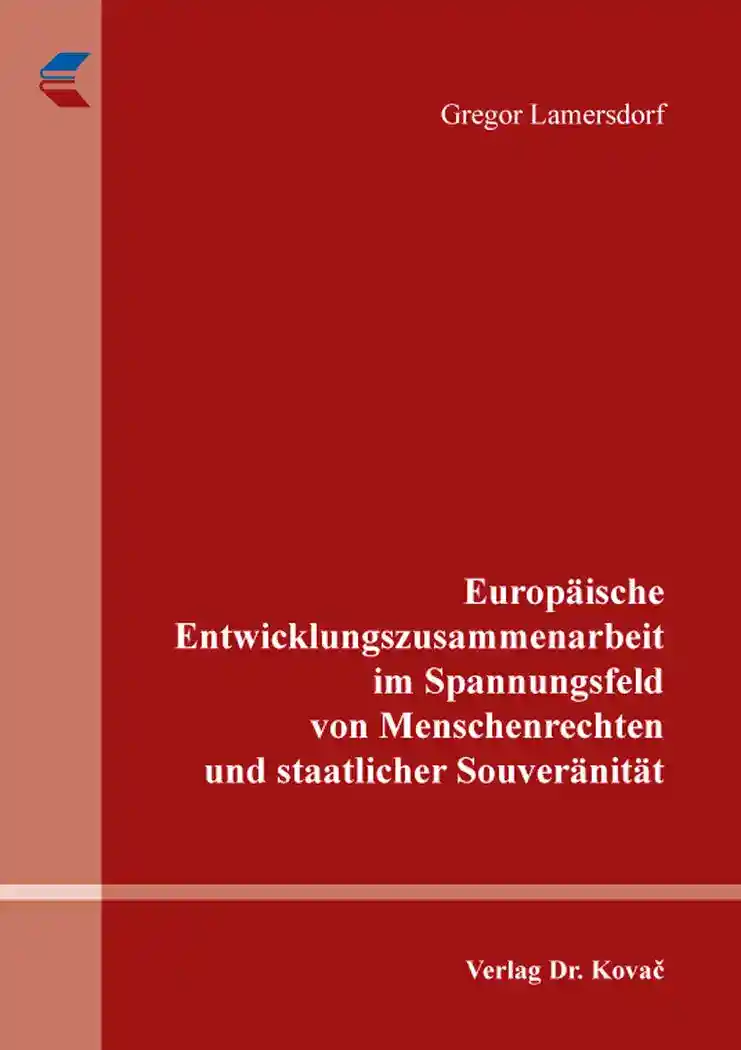Gregor LamersdorfEuropäische Entwicklungszusammenarbeit im Spannungsfeld von Menschenrechten und staatlicher Souveränität
Studien zum Völker- und Europarecht, volume 172
Hamburg 2020, 258 pages
ISBN 978-3-339-11708-3 (print) |ISBN 978-3-339-11709-0 (eBook)
Rezension
[...] gelangt [Vf.] zu dem Schluss, dass die menschenrechtliche Konditionalität zwar die inneren Angelegenheiten der Staaten betreffe, jedoch nicht gegen das völkerrechtliche Interventionsverbot verstoße. Kritik übt er an der asymmetrischen Ausgestaltung der Beziehungen, in der von einer tatsächlichen Zusammenarbeit auf Augenhöhe nicht die Rede sein könne. Vor allem widerspreche diese Ungleichheit dem universellen Ansatz der Agenda 2030, hier fordert Lamersdorf, dass sich die EU zukünftig auch der eigenen menschenrechtlichen Verpflichtungen bewusst sein und auch Engagement zum Schutz der Menschenrechte in der Privatwirtschaft betreiben müsse.
About this book deutschenglish
This work examines the conflict between human rights and state sovereignty in European development cooperation using the Cotonou Agreement as an example. The Cotonou Agreement is the EU's largest development treaty concluded between the EU and 79 ACP countries in the year 2000.
The tension between human rights and state sovereignty in European development cooperation results from the human rights conditionality, which is also enshrined in the Cotonou Agreement. This conditionality enables the EU to sanction a violation of the human rights and democracy clauses laid down in the respective treaty by suspending development cooperation, i.e. withholding or cancelling development aid funds. The objectives pursued with this conditionality relate to the political conditions within the recipient states and are therefore primarily subject to the sovereignty of the state concerned. However, due to the political, economic and institutional imbalance between the EU and ACP countries, the content of the development cooperation and its conditionality is largely determined by the EU alone.
At the level of international law, state sovereignty is protected by the principle of non-intervention. This work therefore examines to what extent the human rights conditionality constitutes a violation of this principle of non-intervention. A violation of the principle of non-intervention might however be generally excluded by a possible development of international law into a system of law that is more and more focussing on the individual and its inalienable human rights and is obliging all states to fully respect these human rights. The human rights obligations laid down in development policy conditionality might no longer be at the disposal of the individual states and an obligation in the development cooperation to observe these rights could therefore not affect the internal affairs of the recipient states.
The work thus addresses the major issues of international law - the changing concept of state sovereignty, the right of self-determination of peoples, universal human rights protection, neutrality of international law, the right to democracy - and places them in the context of European development policy.
Keywords
DemokratiegebotEntwicklungszusammenarbeitInterventionsverbotMenschenrechteSelbstbestimmungsrechtStaatliche SouveränitätVertrag von CotonouWertneutralität des VölkerrechtsIhr Werk im Verlag Dr. Kovač

Möchten Sie Ihre wissenschaftliche Arbeit publizieren? Erfahren Sie mehr über unsere günstigen Konditionen und unseren Service für Autorinnen und Autoren.
